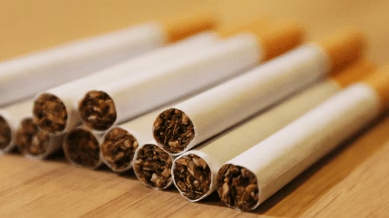
Chandigarh: The Footpath Cycle and Rehri Fadi Workers Union of Chandigarh has voiced strong opposition to the suggested increase of Goods and Services Tax (GST) to 35 percent on “sin goods,” including tobacco products and carbonated beverages. They argue that this hike would severely impact their earnings and could lead to increased smuggling and a drop in government revenue.
Union president Ram Millan Gaud stated that many consumers are already turning away from purchasing legal cigarettes due to the high prices caused by existing taxes. He warned that the proposed increase would drive even more customers towards cheaper illegal alternatives.
The union, which consists of over 1,200 small vendors selling tobacco from roadside kiosks, expressed concern that the government would lose out on revenues from legal sales, while law-abiding retailers would suffer significant financial losses.
Gaud criticized the government for seemingly favoring illegal sellers and smugglers at the expense of compliant businesses and tax-paying citizens.
On December 2, the Group of Ministers on GST rate rationalization decided to propose the tax increase on “sin goods.” The upcoming GST Council meeting on December 21 in Jaisalmer, Rajasthan, is expected to address various issues, including the GST framework for life and health insurance, tax rate adjustments, and GST slabs.
The Swadeshi Jagran Manch (SJM), linked to the Rashtriya Swayamsevak Sangh (RSS), has already opposed the proposed 35 percent GST on “sin goods.” SJM officials argue that introducing another tax slab for luxury and sin goods undermines the fundamental efficiency of the tax system. They believe the current number of GST slabs should be reduced, and the highest slab of 28 percent eliminated. Adding a new higher slab could complicate the GST structure further without necessarily boosting revenue.
SJM national co-convenor Ashwani Mahajan emphasized the need to raise awareness about the health and economic risks associated with tobacco use and warned of the growth of a “China-led black market” due to excessive taxation.
Activists against tobacco use have noted a rise in illegal cigarette sales in Punjab and Haryana, which poses serious health risks to smokers, particularly newcomers, who may be attracted to the appealing packaging of international brands.
According to trade insiders, Punjab and Haryana have annual legal cigarette markets of 120 million and 100 million cigarettes, respectively, with the illegal market making up about 20 percent of total sales in both states. Chandigarh and Panchkula have annual markets of 30 million and six million cigarettes, respectively, with a similar share of illegal sales.
Many of the illegal cigarettes come from China and Indonesia, and retailers are drawn to them because they are priced significantly lower than legal products, often selling for one-fifth the cost of legitimate cigarettes.
